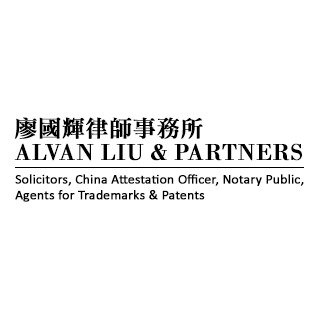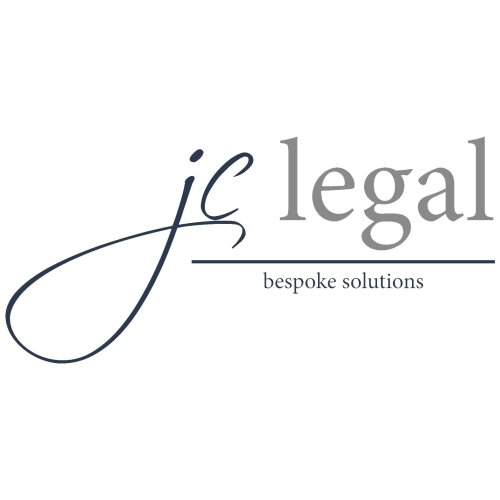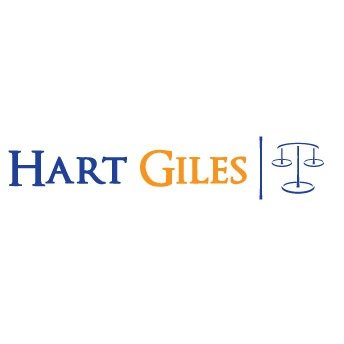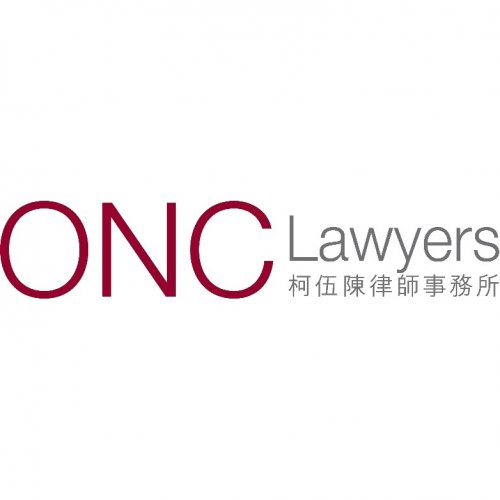Best Antitrust Litigation Lawyers in Hong Kong
Share your needs with us, get contacted by law firms.
Free. Takes 2 min.
Or refine your search by selecting a city:
List of the best lawyers in Hong Kong
About Antitrust Litigation Law in Hong Kong
Antitrust litigation in Hong Kong refers to legal actions involving the enforcement of competition laws, which are designed to prevent anti-competitive behavior and protect market fairness. The primary legislation governing antitrust matters in Hong Kong is the Competition Ordinance (Cap. 619), which came into full effect in December 2015. This law prohibits agreements and practices that restrict competition, abuses of market power, and anti-competitive mergers. Antitrust litigation typically involves cases where businesses or individuals seek legal remedies for practices such as price-fixing, market sharing, bid-rigging, or abuse of dominant position within the Hong Kong market.
Why You May Need a Lawyer
There are several situations where seeking legal advice or representation in Hong Kong antitrust litigation might be crucial:
- Your business is being investigated by the Competition Commission for suspected anti-competitive conduct.
- You are facing allegations of price-fixing, market allocation, or unfair business practices from competitors or regulators.
- You wish to bring a claim against another party for breach of competition laws and seek damages or an injunction.
- You need to defend your company against enforcement proceedings before the Competition Tribunal.
- You are involved in a merger or acquisition that may raise competition concerns under the Competition Ordinance.
- Your business requires guidance in implementing compliance programs to ensure adherence to competition law.
Antitrust cases can be complex, often involving intricate legal and economic analysis. Engaging a lawyer with experience in antitrust litigation ensures that your rights and interests are properly protected.
Local Laws Overview
The key legal framework for antitrust litigation in Hong Kong is the Competition Ordinance (Cap. 619). The Ordinance is built around three main prohibitions:
- First Conduct Rule: Prohibits agreements or concerted practices that prevent, restrict, or distort competition in Hong Kong. Common examples are price-fixing, bid-rigging, and market sharing.
- Second Conduct Rule: Prohibits firms with substantial market power from abusing such power to reduce competition. Abuse may include predatory pricing, refusing access to essential facilities, or tying products.
- Merger Rule: Applies only to mergers involving carrier licenses (mainly in the telecommunications sector). Mergers that substantially lessen competition in Hong Kong may be prohibited.
The Hong Kong Competition Commission investigates suspected violations. Where evidence supports it, proceedings can be brought before the Competition Tribunal, which has the authority to impose penalties, award damages, and order remedial actions.
Frequently Asked Questions
What constitutes anti-competitive behavior under Hong Kong law?
Anti-competitive behavior includes practices such as price-fixing, bid-rigging, market allocation, abuse of dominant position, predatory pricing, and any arrangements between businesses that reduce competition within Hong Kong.
Who enforces antitrust laws in Hong Kong?
The Competition Commission is the principal enforcement body. The Competition Tribunal, a specialized court within the judiciary, adjudicates antitrust cases and determines penalties or remedies.
What penalties can the Competition Tribunal impose?
Penalties can include substantial fines (up to 10 percent of a business's turnover in Hong Kong for each year of infringement, up to a maximum of three years), compensation to affected parties, and directives to cease anti-competitive conduct.
Can individuals or companies bring private legal action for competition law breaches?
Yes. Individuals or companies who have suffered loss or damage due to anti-competitive conduct can bring private actions to the Competition Tribunal for damages and other remedies.
Is there a leniency program available for whistleblowers or cooperating parties?
Yes. The Competition Commission operates a leniency policy for businesses or individuals who come forward with information about cartel conduct in exchange for immunity or reduced penalties.
What is considered a dominant market position?
A dominant position means having substantial market power to act independently of competitors, customers, or suppliers. The assessment depends on factors like market share, barriers to entry, and competitive constraints.
Does the Competition Ordinance apply to all sectors in Hong Kong?
The Ordinance applies to all sectors except those statutorily exempt, such as certain government activities and specified conduct under sector-specific rules (e.g., certain aspects of telecommunications and broadcasting).
How long do antitrust investigations and litigation typically take?
The duration can vary depending on the complexity of the case, ranging from several months for straightforward investigations to several years for complex litigation or appeals.
What should I do if my company receives a notice from the Competition Commission?
Seek legal advice immediately. You should cooperate with the Commission, gather and preserve relevant documents, and avoid any destruction of evidence or making public statements without professional guidance.
Can antitrust decisions in Hong Kong be appealed?
Yes. Decisions of the Competition Tribunal can be appealed to the Court of Appeal on points of law or, in certain cases, on facts with the Tribunal's permission.
Additional Resources
For more information or guidance on antitrust matters in Hong Kong, the following resources and organizations may be helpful:
- Competition Commission of Hong Kong: Offers guidelines, publications, and information on the enforcement of competition law.
- Competition Tribunal: Handles litigation and publishes decisions on antitrust cases.
- Hong Kong Bar Association and The Law Society of Hong Kong: Provide directories of qualified lawyers with experience in competition law.
- Consumer Council of Hong Kong: Assists consumers affected by anti-competitive conduct.
Next Steps
If you believe you are involved in or affected by an antitrust issue in Hong Kong, consider taking the following steps:
- Document all relevant facts and evidence relating to the suspected anti-competitive conduct.
- Seek legal advice from a qualified lawyer with expertise in Hong Kong competition law and antitrust litigation.
- If you are under investigation, respond promptly and respectfully to the Competition Commission, and cooperate fully-always under the guidance of legal counsel.
- Consider whether a self-report or leniency application may be appropriate if you are involved in a cartel or suspect wrongdoing within your business.
- Stay informed by reviewing guidance and decisions published by the Competition Commission and Competition Tribunal.
Acting swiftly and seeking professional legal support is crucial to protecting your interests and navigating antitrust litigation successfully in Hong Kong.
Lawzana helps you find the best lawyers and law firms in Hong Kong through a curated and pre-screened list of qualified legal professionals. Our platform offers rankings and detailed profiles of attorneys and law firms, allowing you to compare based on practice areas, including Antitrust Litigation, experience, and client feedback.
Each profile includes a description of the firm's areas of practice, client reviews, team members and partners, year of establishment, spoken languages, office locations, contact information, social media presence, and any published articles or resources. Most firms on our platform speak English and are experienced in both local and international legal matters.
Get a quote from top-rated law firms in Hong Kong — quickly, securely, and without unnecessary hassle.
Disclaimer:
The information provided on this page is for general informational purposes only and does not constitute legal advice. While we strive to ensure the accuracy and relevance of the content, legal information may change over time, and interpretations of the law can vary. You should always consult with a qualified legal professional for advice specific to your situation.
We disclaim all liability for actions taken or not taken based on the content of this page. If you believe any information is incorrect or outdated, please contact us, and we will review and update it where appropriate.
Browse antitrust litigation law firms by city in Hong Kong
Refine your search by selecting a city.















